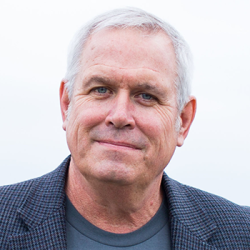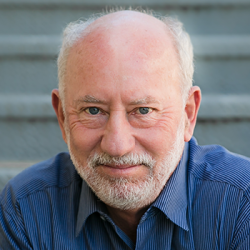
The Buck Institute for Education holds a vision that all students – no matter their background or where they are from – have access to high quality Project Based Learning (PBL). We hold a moral imperative to make sure that all students, especially those furthest from opportunity, have the support and high expectations needed to achieve equitable educational outcomes and gain a sense of agency through a liberating process like PBL.
Starting tomorrow, we’ll be holding our biannual three-day National Faculty Summit, a gathering of our PBL workshop facilitators and coaches, in Detroit, Michigan. We decided on Detroit to emphasize our commitment to historically underserved students.
In preparing for our Summit we read with sadness and familiarity the recent story in The New York Times, “Access to Literacy is not a Constitutional Right, Judge in Detroit Rules.” A similar lawsuit filed on behalf of 10 students in California is heading for a trial in Oct. 2019, accusing the state of failing hundreds of thousands of students – mostly low-income students and students of color – by not providing access to basic literacy instruction. Another lawsuit, settled in 2004, found that California was failing to provide these same students with basic necessities such as clean and safe schools, textbooks, and qualified teachers.
The Right to Deeper Learning
Regardless of whether it’s technically a federal constitutional right, students have the moral right to be provided with an education that prepares them for their futures. Such an education includes not only basic literacy and math skills, but also what’s known as “deeper learning” competencies: Master core academic content; Think critically and solve complex problems; Work collaboratively; Communicate effectively; Learn how to learn; Develop academic mindsets. One of the best ways to teach these competencies, we believe, is by using Project Based Learning.
But students can’t learn if their overcrowded classroom is too cold or too hot or vermin-infested, or if they lack resources like books and pencils. Or if their teachers come and go and are not adequately prepared. Or if they fear for their safety. The situation is parallel to the familiar “hierarchy of needs” created by psychologist Abraham Maslow. At the base of the pyramid are physiological needs, followed by safety needs, social needs, esteem needs, and finally, at the top, self-actualization—achieving full potential and able to fulfill creative activities.
For students in school, physiological needs must first be met with breakfast and lunch programs, water fountains (and restrooms) that work, and air conditioning and heat in clean classrooms. Then comes safety, not just physical but emotional. On the third level comes basic instruction. Only if these needs are met can students access the fourth level—deeper learning, including PBL—which is what allows them to reach the highest level and become empowered and skilled graduates.
We have come to realize that, in advocating for equitable outcomes through Project Based Learning, we cannot only work at the top of Maslow’s hierarchy. We also need to be a loud and consistent voice for all students to have safe schools, caring and prepared teachers, and researched based instructional strategies to become literate and proficient in math. We call upon Michigan and California, and all states, to provide your students with an equitable and powerful education.


